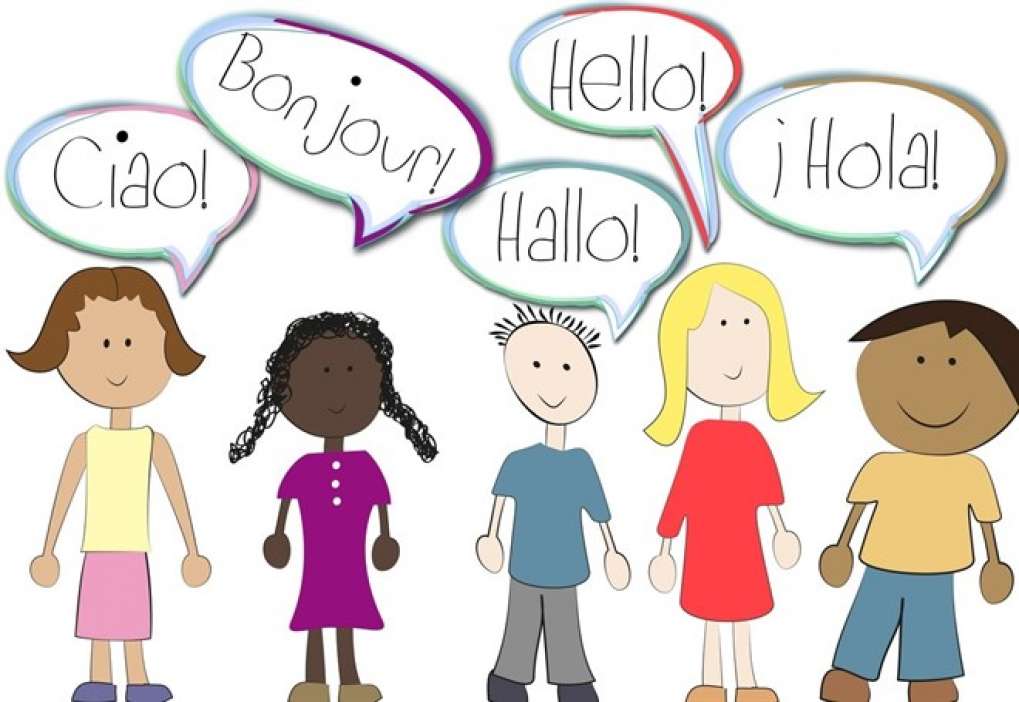A big one is institutional pressure. A child’s time spent with a second language is time not spent on their first. So teachers often discourage parents from speaking their languages to their children. (This is especially true if the second language lacks prestige.) Parents often reluctantly comply, worried about their offspring’s education. This is a shame; children really can master two languages or even more. Research does indeed suggest their vocabulary in each language may be somewhat smaller for a while. But other studies hint at cognitive advantages among bilinguals. They may be more adept at complex tasks, better at maintaining attention, and (at the other end of life) suffer the onset of dementia later.
一個大因素就是制度性壓力。如果一個孩子的時間花在第二語言上那么講母語的時間就肯定少了。所以教師總是不鼓勵父母和孩子講自己的母語。(這種情況尤其體現在第二語言沒那么普及的時候。)考慮到孩子的教育,父母往往會不情愿地遵從。這確實很可惜;孩子們實際可以掌握兩種或更多語言。研究確實表明,一段時間內,每種語言的詞匯量會減少。但其他的研究也暗示了雙語習得者的認知優勢。可能更擅長復雜的任務,更善于保持注意力,(在老年時)更晚得癡呆癥。

Even without those side-effects, though, a bilingual child’s connection to relatives and another culture is a good thing in itself. How to bring it about? When both parents share the heritage language, the strategy is often to speak that at home, and the national language outside. But when they have different languages, perhaps the most common approach is “one parent, one language”. François Grosjean, a linguist at the University of Neuchâtel in Switzerland, emphasises necessity. He recommends reserving occasions on which the only language that may be spoken is the one that needs support.
即使沒有這些附加優勢,掌握雙語的兒童和親人以及另一種文化的連接本身就是一件好事。如何實現?父母雙方都使用傳承語言,可以采用在家講傳承語在外面講本國語言的策略。但若父母雙方講不同語言,也許最常見的方法是“和父母各講一種語言”。瑞士納沙泰爾大學語言學家弗朗索瓦·格羅讓強調了家族內傳承語言的重要性。他認為講一種語言的唯一保留場合正需要支持。
Sabine Little, a German linguist at the University of Sheffield, puts the emphasis elsewhere. Making the heritage language yet another task imposed by parents can lead to rejection, she argues. She recommends letting the child forge their own emotional connection to the language. Her son gave up on German for several years before returning to it. She let him determine when they would speak it together. (He decided on the pair’s trips in her car to after-school activities, during which his father, who doesn’t speak German, would not be excluded.) They joke about his Anglo-German mash-ups and incorporate them into their lexicon. Like many youngsters, his time on YouTube is restricted—but he is allowed more if he watches in German. Ms Little suggests learning through apps and entertainment made for native speakers; the educational type smack of homework, she thinks.
謝菲爾德大學德國語言學家扎比內·利特爾則把重點放在其他地方。她認為讓傳承語言成為父母強加給孩子又一項任務可能會讓孩子反感。她建議讓孩子們自己建立和語言的情感聯系。她兒子好幾年不學德語,后來又重學的。他讓孩子決定什么時候一起說德語。(孩子決定坐上她的車參加親子課外活動,在此期間孩子不會說德語的父親也不會排除在外。)他們拿他的英德混搭開玩笑,并將其納入他們的詞典。和許多年輕人一樣,孩子上YouTube的時間受限——但如果用德語觀看就可以看更長時間。利特爾建議通過專為母語人士設計的應用程序和娛樂學習;她認為這種教育類型有點像家庭作業。
Languages are an intimate part of identity; it is wrenching to try and fail to pass them on to a child. Success may be a question of remembering that they are not just another thing to be drilled into a young mind, but a matter of the heart.
語言是身份的重要組成部分;試圖將其傳遞給后代卻失敗是痛苦的。要想成功得記住語言不僅要灌輸到下一代的腦子,還要到達心靈。
譯文由可可原創,僅供學習交流使用,未經許可請勿轉載。












